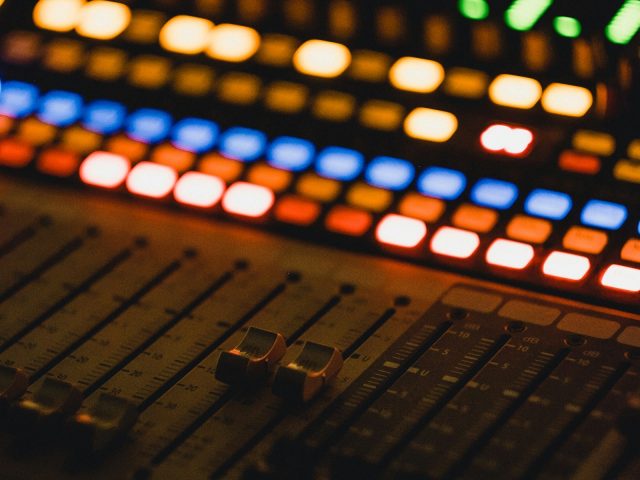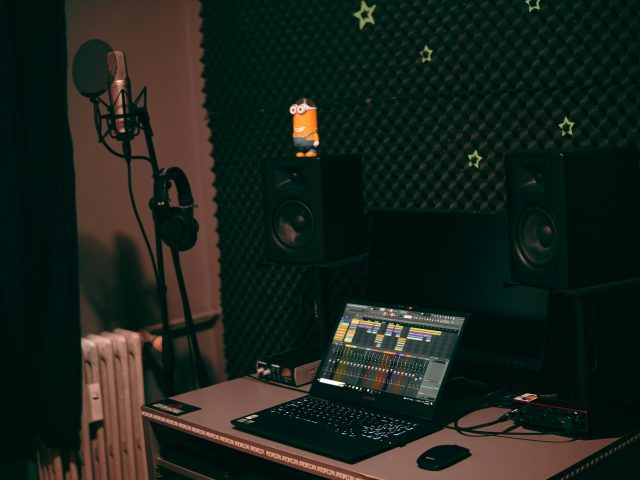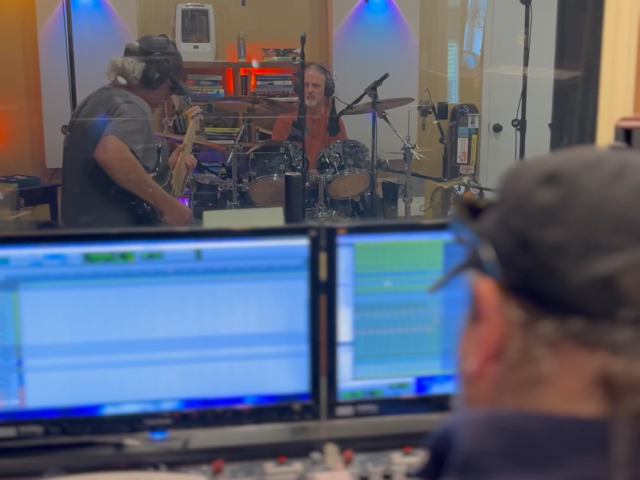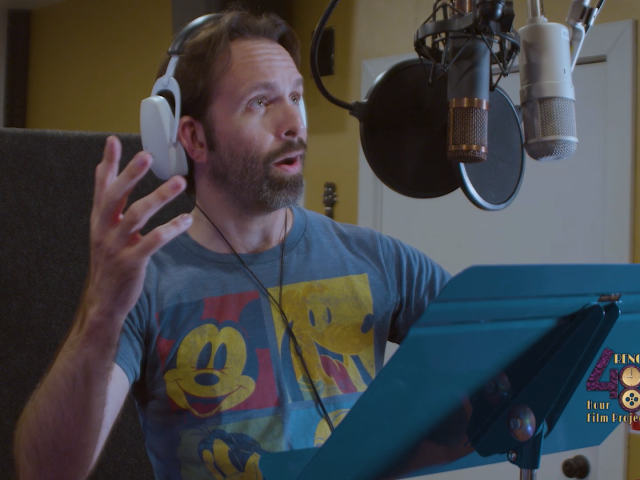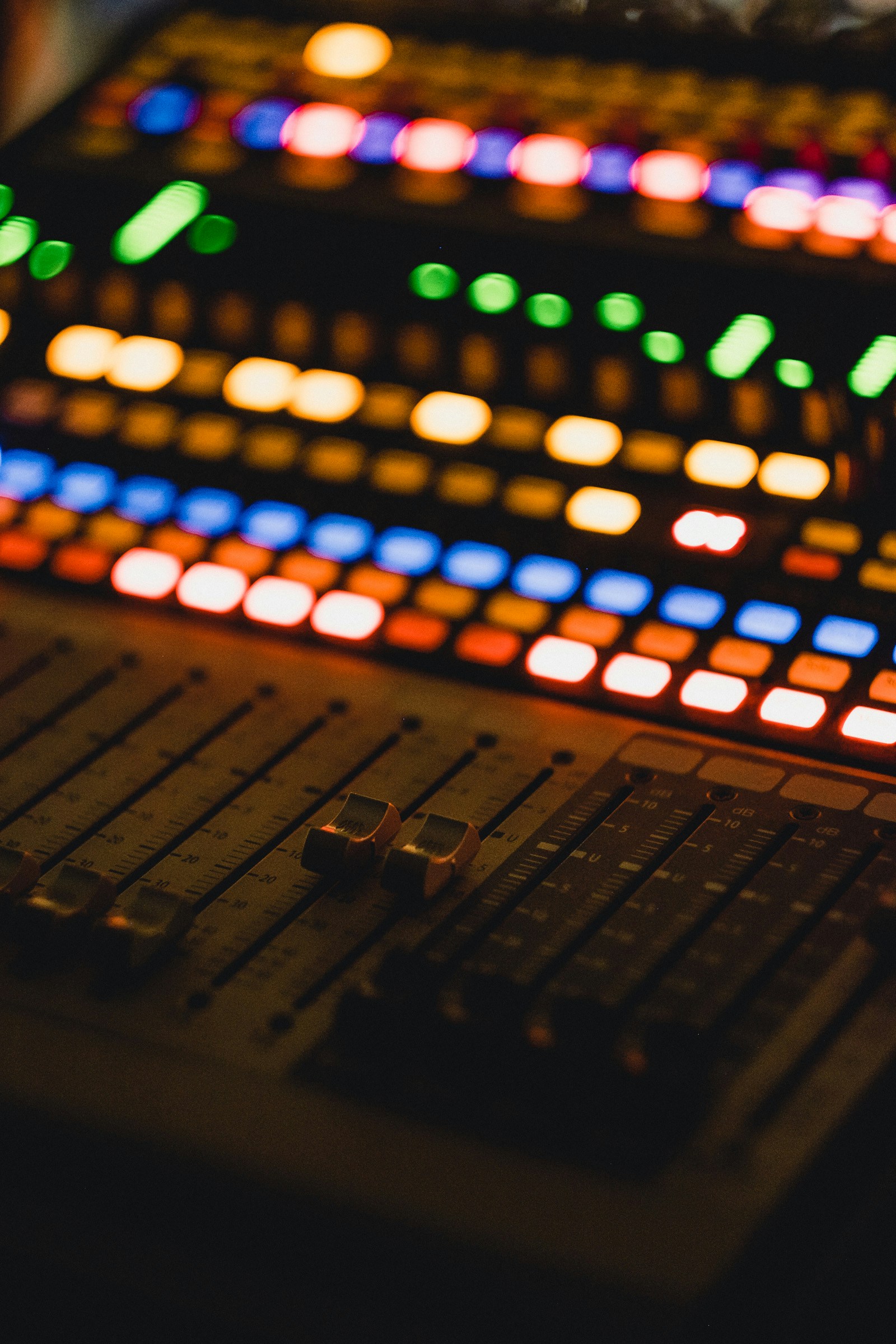
Mixing vs. Mastering: Why Both Matter for Your Next Reno Release
Mixing vs. Mastering: Why Both Matter for Your Next Reno Release
If you’ve ever been confused about the difference between mixing and mastering, or wondered if you really need both: you’re not alone. These two critical stages of music production often get lumped together, but they serve completely different purposes in bringing your music to life. Understanding what each process does will help you make smarter decisions about your next release and ensure your tracks compete with anything coming out of Nashville, Los Angeles, or right here in Reno.
Think of it this way: if recording captures your performance, mixing shapes it into a cohesive song, and mastering polishes that song for the world to hear. Both are essential, and skipping either one will leave your music sounding unfinished: no matter how great your songs are.
What Mixing Really Does for Your Music
Mixing is where the magic of collaboration happens between all your individual tracks. During recording, you might lay down 20, 50, or even 100 separate tracks: lead vocals, harmonies, multiple guitar parts, bass, drums, keyboards, strings, and more. Mixing takes all these isolated elements and transforms them into a single, unified piece of music.
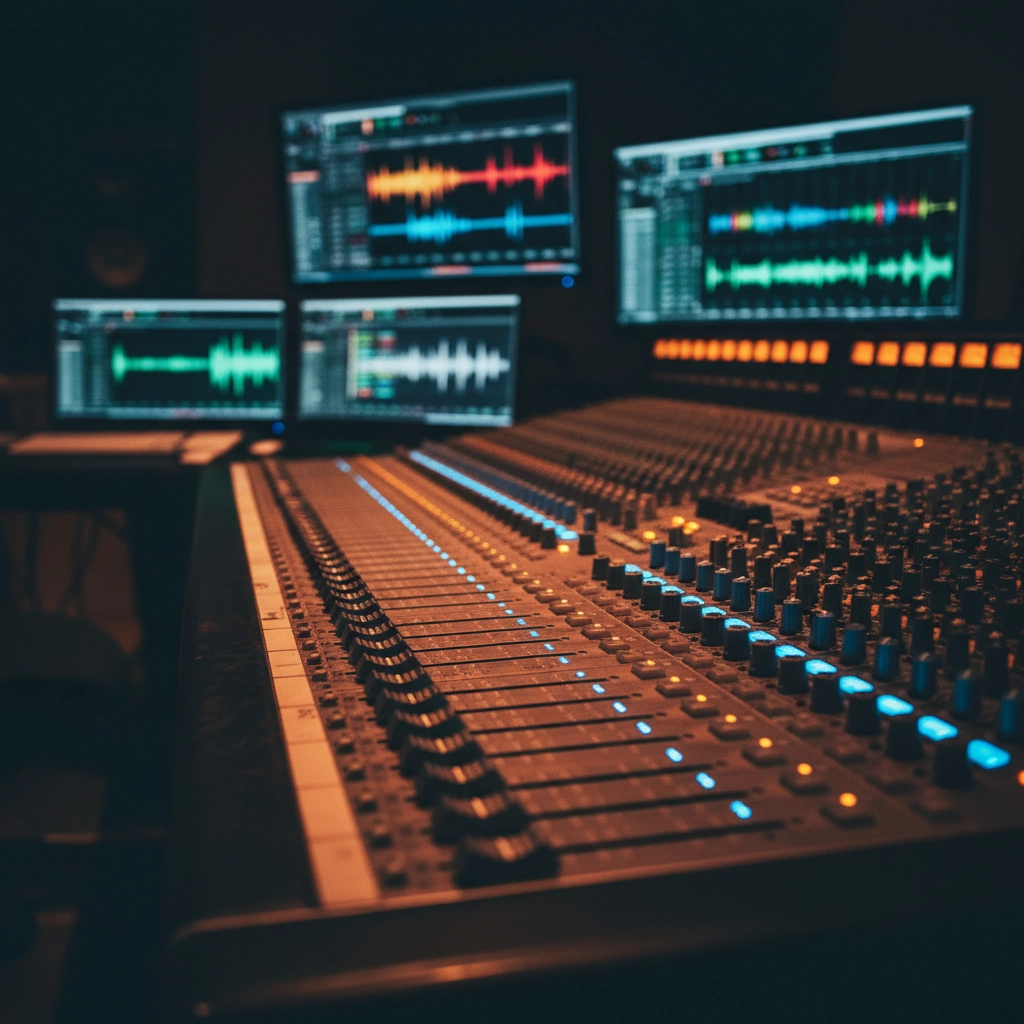
The mixing process involves balancing levels so every instrument can be heard clearly, carving out frequency space so your bass guitar doesn’t fight with your kick drum, positioning sounds across the stereo field to create width and dimension, controlling dynamics with compression to maintain consistency, and adding effects like reverb and delay to enhance the emotion and atmosphere of your song.
Here’s what makes mixing so time-intensive: every adjustment affects everything else. Boost the vocals, and suddenly the guitar sounds too quiet. Add compression to the drums, and the bass might need to be rebalanced. A skilled mixing engineer makes hundreds of these interconnected decisions, and each one shapes the final character of your song.
Mixing represents about 80% of your song’s final sound because this is where the foundational relationships between instruments are established. The mixing engineer has access to every individual track and can make creative decisions that simply aren’t possible during mastering. This is where songs get their personality: the punchy drums on a rock track, the intimate vocals on a ballad, or the wide, ambient soundscape of an indie song.
How Mastering Completes the Picture
While mixing works with dozens of individual tracks, mastering works with just one: the final stereo mix. But don’t mistake this simplicity for lack of importance. Mastering is the bridge between your studio creation and how listeners will actually experience your music.
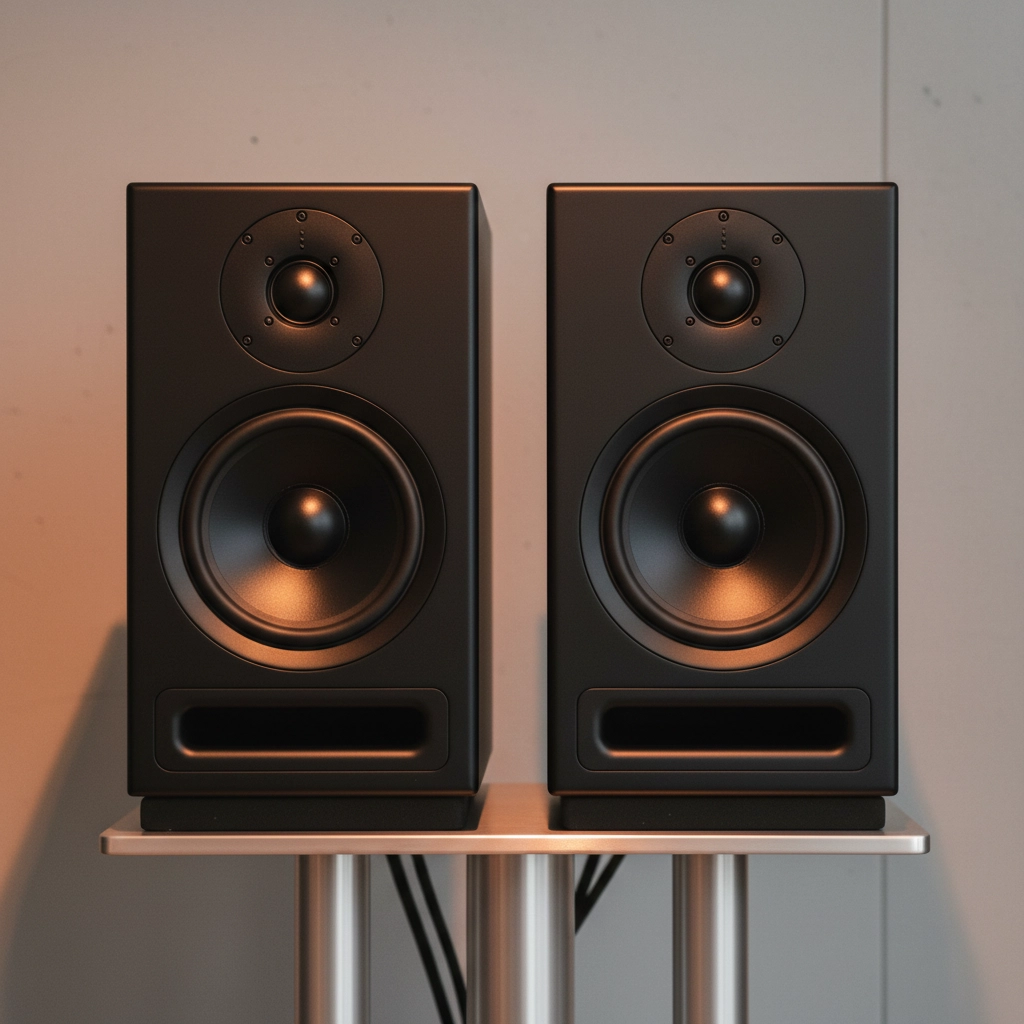
During mastering, an engineer focuses on how your song translates across different playback systems. They’ll test your track on professional monitors, consumer speakers, headphones, car stereos, and even phone speakers to ensure it sounds great everywhere. The mastering process includes final EQ adjustments to balance the overall tone, compression and limiting to optimize loudness for streaming platforms and radio, stereo enhancement to add width and dimension, and quality control to catch any issues that might have been missed during mixing.
Mastering also ensures consistency. If you’re releasing an EP or album, mastering makes sure all your tracks sound like they belong together, with consistent volume levels and tonal balance. This cohesion is what separates professional releases from collections of individual songs.
Why You Need Both (And Can’t Skip Either)
The relationship between mixing and mastering isn’t redundant: it’s complementary. Each process requires different skills, different tools, and most importantly, different perspectives.
Fresh Ears Make All the Difference
After spending hours mixing a song, you lose objectivity. You’ve heard every guitar lick and vocal phrase hundreds of times. A mastering engineer brings fresh ears to your project, catching issues you might have missed and hearing opportunities for improvement that weren’t apparent during mixing.
Different Tools, Different Goals
Mixing uses a vast array of processors and effects to shape individual elements. Mastering uses more specialized tools designed to work on complete mixes without disrupting the careful balance already established. The goals are different too: mixing creates the sound, mastering ensures that sound translates properly to the real world.
Professional Standards Matter
In today’s streaming landscape, your music needs to sound professional alongside major label releases. Proper mastering ensures your tracks meet the technical standards expected by streaming platforms, radio stations, and listeners who are used to hearing professionally finished music.
The Abbey West Approach: Crafting Your Professional Sound
At Abbey West Recording, we’ve seen firsthand how both mixing and mastering transform raw recordings into release-ready tracks. Our approach combines technical expertise with creative vision, ensuring your music maintains its artistic integrity while meeting professional standards.
During mixing sessions, we work closely with artists to capture their vision while making the technical decisions that bring out the best in each song. We’re not just balancing levels: we’re enhancing the emotional impact of your music, whether that means creating an intimate acoustic atmosphere or building the wall of sound that makes rock anthems soar.
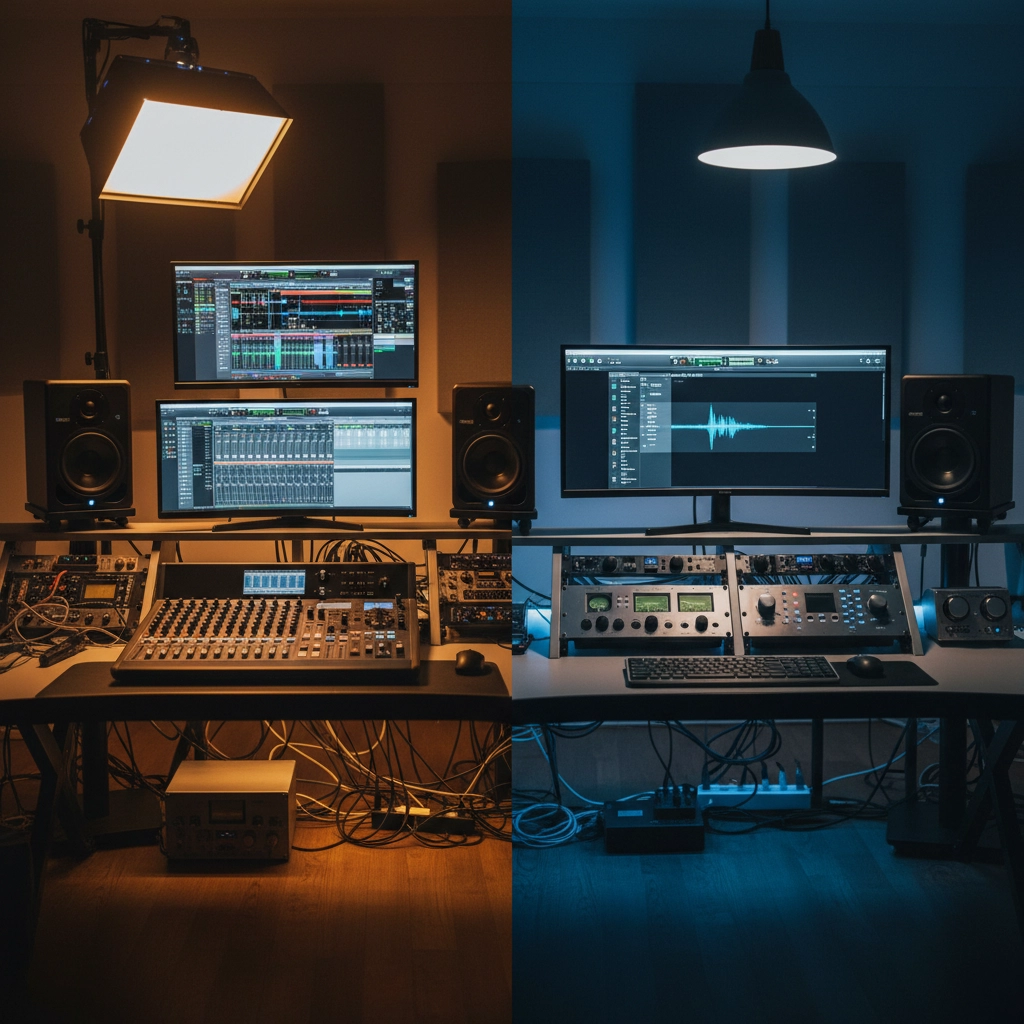
Our mastering process focuses on how your music will be heard in the real world. We test on multiple systems and prepare your tracks for various distribution formats, from streaming platforms to vinyl pressing. The goal isn’t to dramatically change your mix, but to ensure it translates beautifully across all playback systems while maintaining the character and energy you’ve worked so hard to create.
Making Smart Decisions for Your Release
Understanding the roles of mixing and mastering helps you budget appropriately and set realistic timelines. Mixing typically takes significantly longer: often 8-12 hours per song for complex arrangements, while mastering can usually be completed in 2-4 hours per song. Both investments are crucial, but knowing what each process involves helps you plan more effectively.
For independent artists working with limited budgets, it’s tempting to try handling these processes yourself. While technology has made basic mixing and mastering more accessible, professional results require trained ears, quality monitoring systems, and years of experience. The difference between DIY and professional mixing/mastering becomes immediately apparent when your tracks are played alongside commercial releases.
Your Next Steps Toward Professional Sound
Whether you’re a singer-songwriter ready to release your first EP, a band preparing for your debut album, or a business owner needing custom audio content, investing in both proper mixing and mastering will elevate your project to professional standards.
The music scene in Reno is thriving, and your releases deserve to sound as polished and professional as anything coming out of major music centers. We’re here to help you achieve that level of quality while preserving the unique character that makes your music special.
Ready to take your recordings to the next level? Let’s discuss how professional mixing and mastering can serve your specific project goals. Contact Abbey West Recording to schedule a consultation and hear the difference that proper audio production makes. Your music deserves to be heard at its absolute best: and we’re honored to help you achieve that vision.


